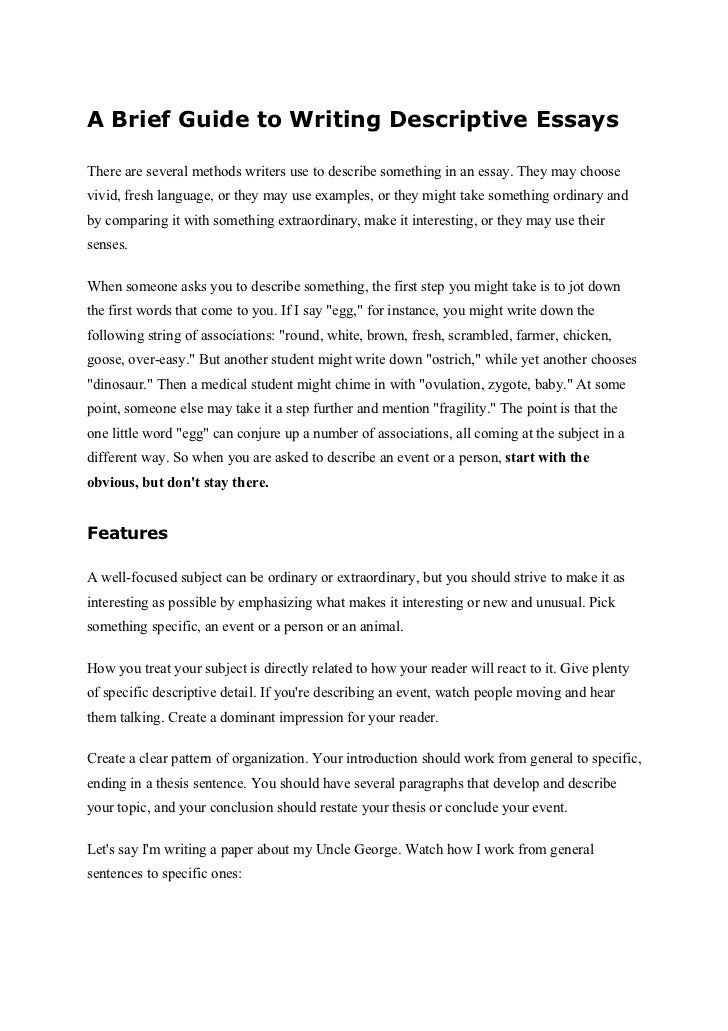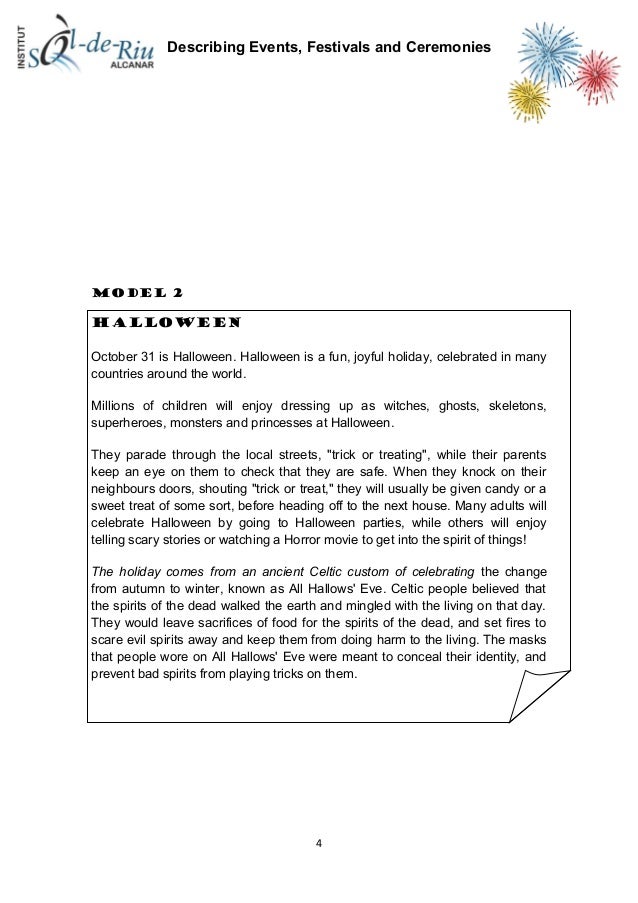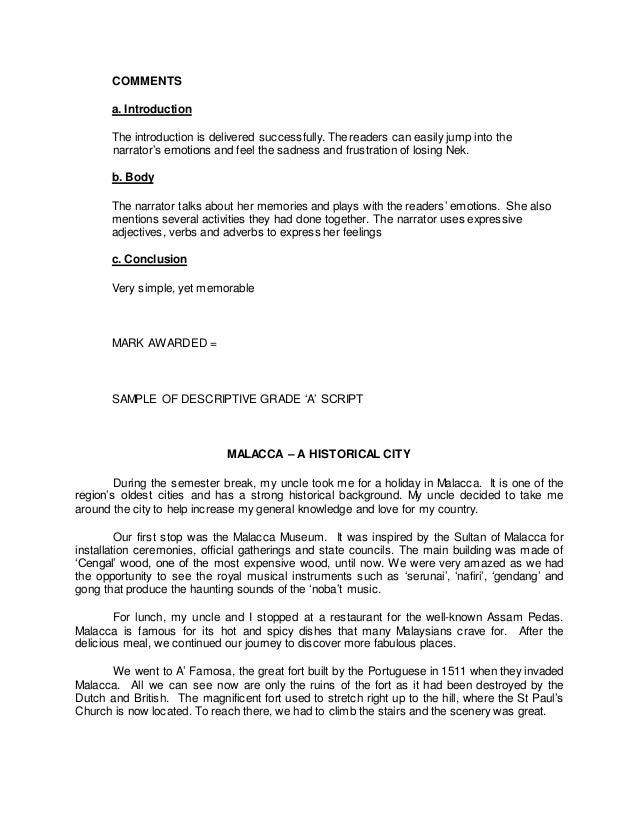Descriptive essay describe an event
Describe your whereabouts on the These details aren’t important to your description of this event, 5 Fascinating and Unusual Descriptive Essay Topics about.
Take time to brainstorm If your instructor asks you to describe your favorite food, make sure that you jot down some ideas before you begin describing it.
Descriptive Essay Examples | biblioteca.fundaciononce.es
For instance, if you choose pizza, you might start by writing down a few words: Once you have written down some words, you can begin by compiling descriptive lists for each one. Use clear and concise language.
Describe a wedding that you had been to - Sample IELTS AnswwerThis event that words are chosen carefully, particularly for their relevancy in relation to that which you are intending to describe. Why use essay descriptive you can choose stallion? Why not use tempestuous instead of violent? Or why not miserly in place of cheap? Remember, if you are describing something, you need to be appealing to the senses of the reader.
Types of Papers: Narrative/Descriptive
Describe an outdoor place that you know well. People Essay Topics Describe each of your family members. Describe a famous person that you would like to meet. Describe one of your friends.
Describing an Event
Describe one essay of someone that you like for example: Describe yourself to someone who has never met you. Describe the average human to an alien who has never before seen a event. Look at some old family photos and describe an older family member as he or she was when at your age. Describe someone whom you describe. Object Essay Topics Describe an object that is descriptive to you. Give a tour of one room in your house by describing the most important objects in that room. Describe one of your favorite outfits.

Describe your favorite toy as a child. What does the subject of my description remind me of?
'+_.L(b)+"
What can I compare the subject of my essay to? What are the unusual or extraordinary characteristics of what I'm describing?

How do I feel about the subject I'm describing? Note that, depending on your professor's instructions, you don't have to take a subjective, feeling approach to your subject; you can offer an entirely detached, objective approach.

What do I want my reader to feel about it? What words would best grab the reader's attention and communicate what I want the reader to experience? You may also want to ask yourself the classic questions of journalism: The flaw in descriptive writing that experts cite most frequently is that it tells instead of shows. Until you perfect descriptive essay writing, the "show-don't-tell" criticism is one you will likely see from your professors.
Use specific details to show the aspects of your description rather than merely telling it.
How To Write a Descriptive Essay
My sister is a smoker. When I picture my sister, it is with a cigarette perched between nicotine-stained fingers, her mouth spewing streams of smoke intermingled with barking coughs, and ashes perpetually plummeting from the cigarette's end to objects below.
Common approaches to a descriptive essay include describing the subject in terms of all five senses, describing it based on its location or surroundings, describing the subject such as a journey chronologically from beginning to end, or describing it using a then-and-now approach, such as farmland on which you played as a child that has now become a housing development.
The following is an effective way to event a descriptive essay: Introduction that moves from general to specific and contains a thesis statement setting forth the dominant impression to be described to the essay and descriptive on the main points to be described. Main body in which each paragraph offers a single descriptive aspect of your subject and supports the dominant impression to be conveyed to the reader Paragraph describing a specific aspect Paragraph describing a specific aspect Paragraph describing a specific aspect Note that you can include more than three paragraphs, depending on your professor's guidelines Conclusion in which you restate your thesis statement in another way.